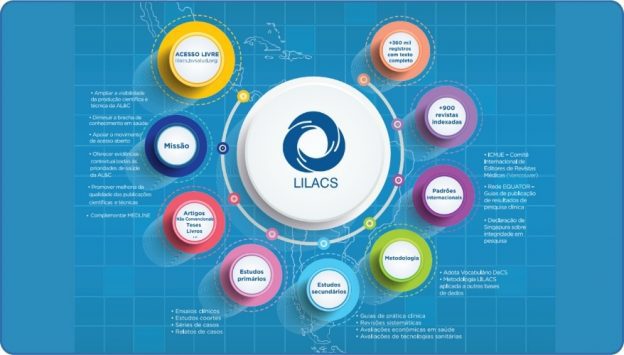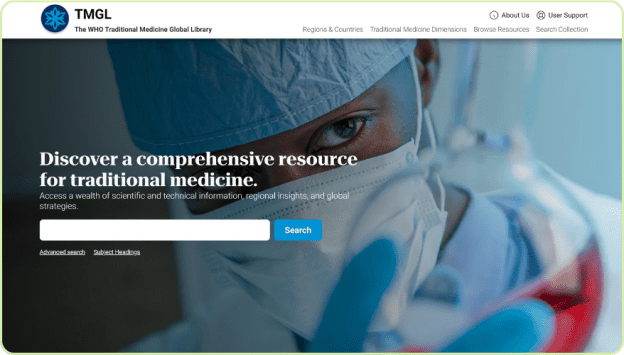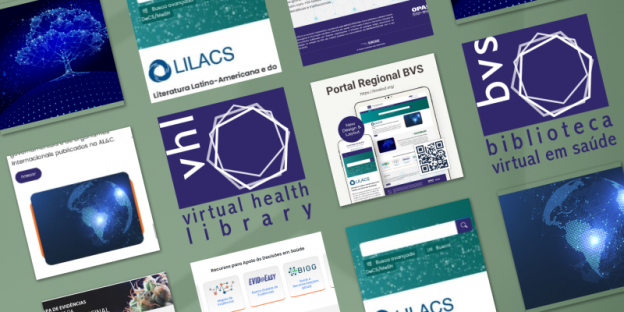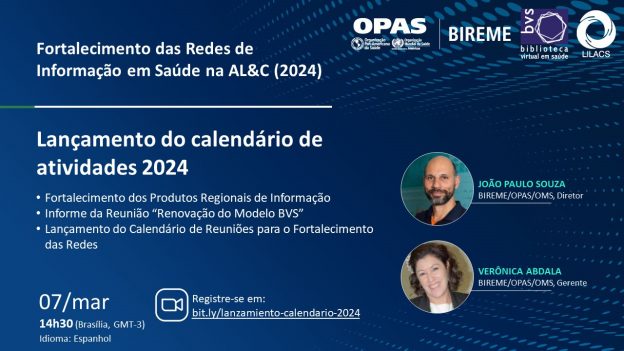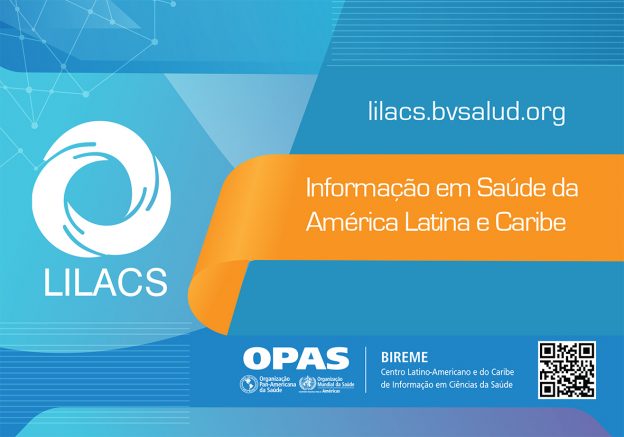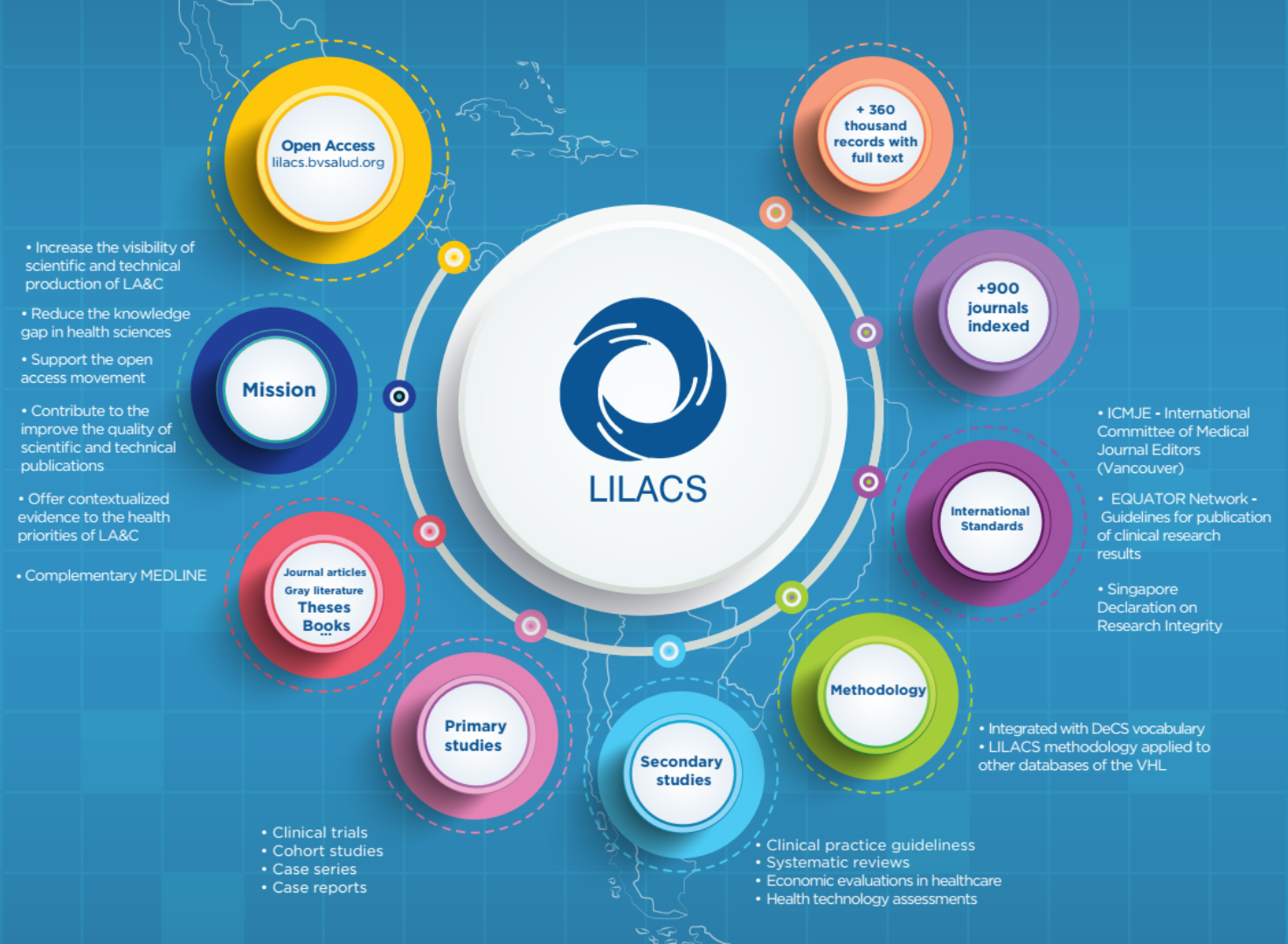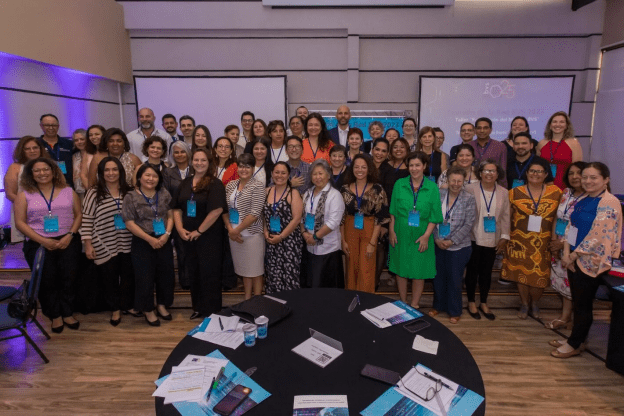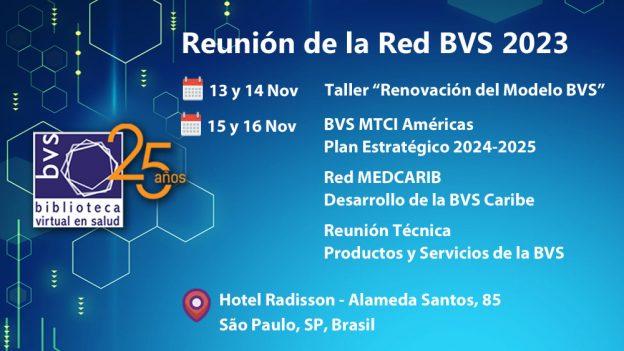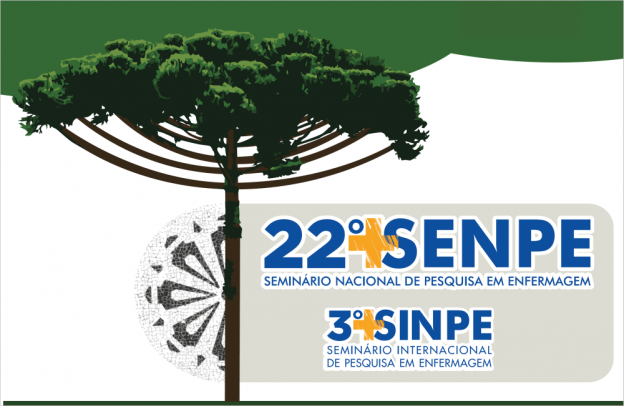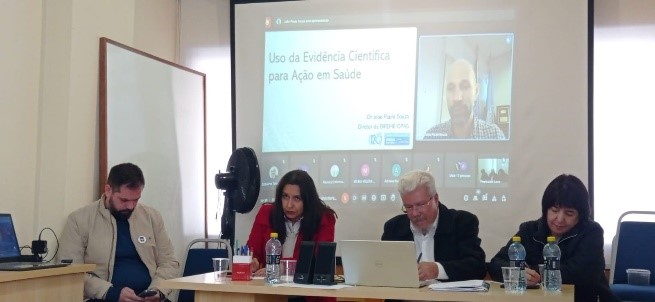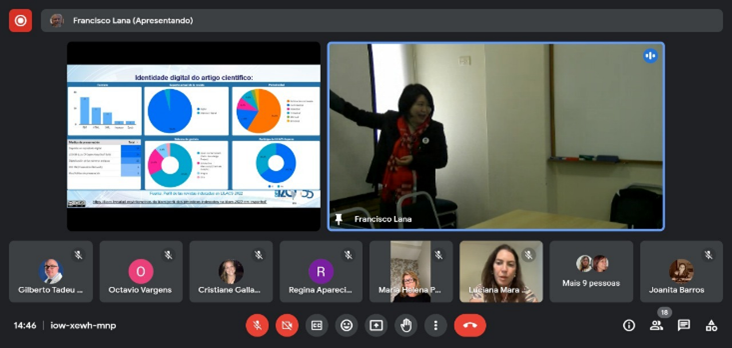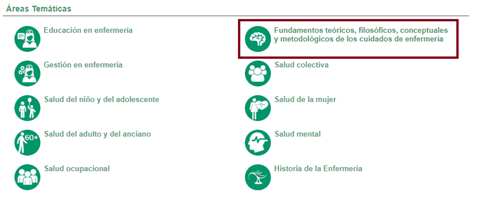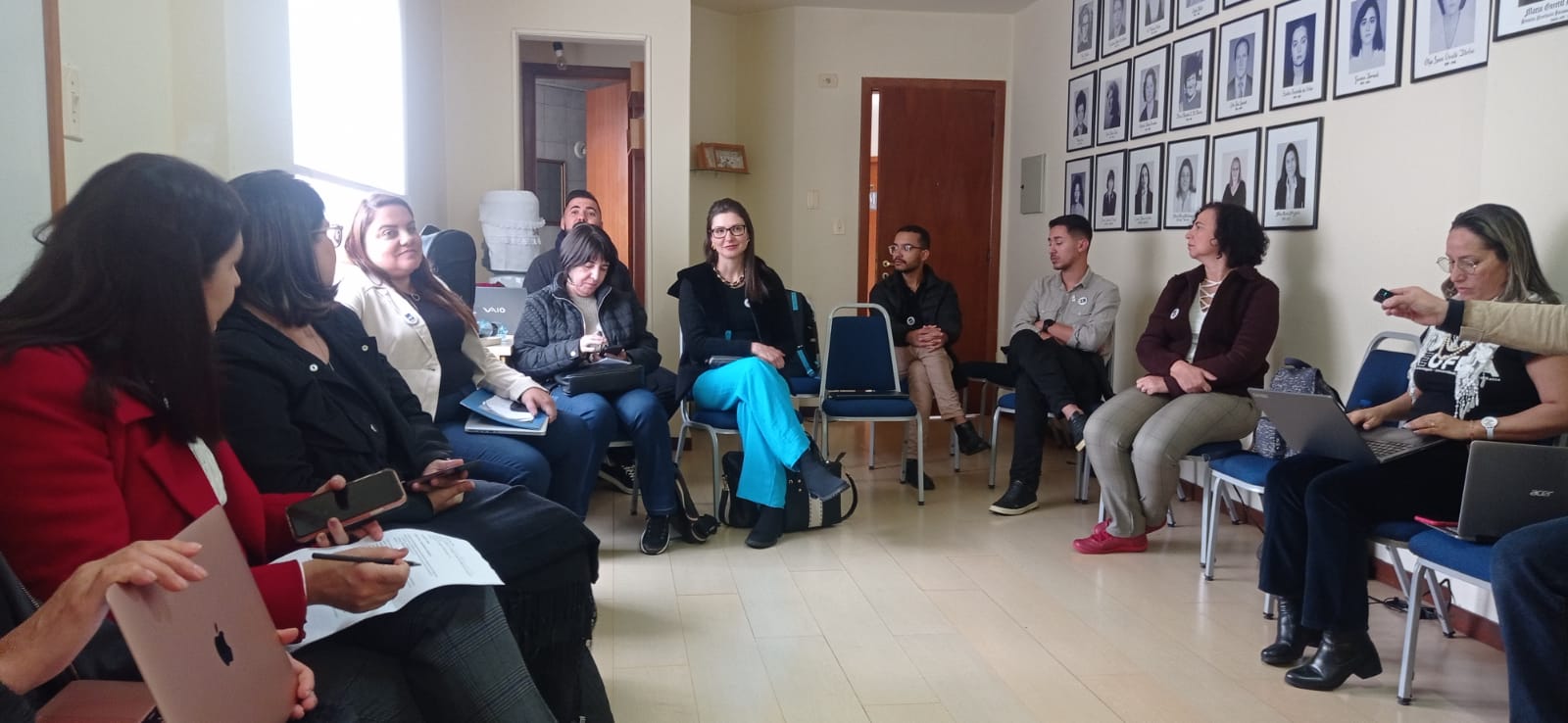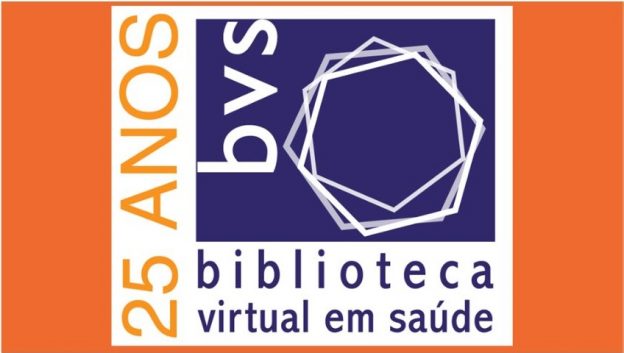During the month of its 26th anniversary, the Virtual Health Library (VHL) launched a new interface for its Regional Portal, the main and most comprehensive instance of the VHL. Designed to facilitate users’ experience in navigating and using health information resources, the VHL Regional Portal brings together more than 37 million bibliographic records from 60 national, specialized, and international databases, as well as directories, repositories, and other types of health information sources.
Founded in 1998 as a model, strategy and operational platform for information management, “the VHL is a public good of the Region of the Americas dedicated to facilitating access to and use of scientific and technical information in health, thereby contributing to the reduction of the gap between knowledge and practice in health care and policies in Latin American and Caribbean countries” , explains Verônica Abdala, Manager of Information Products and Services at BIREME.
Coordinated and promoted by the Latin American and Caribbean Center on Health Sciences Information (BIREME/PAHO/WHO) as a standard for the other VHL instances, the VHL Regional Portal has an interface for searching and retrieving information (iAHx system) throughout its collection of databases, integrated with the DeCS/MeSH thesaurus and offering filtering resources, exporting results and advanced search. The user interface is available in four languages: English, Portuguese, Spanish and French.
“We started working on the Portal update at the end of 2023, mapping everything that was available to users and outlining the new interface,” said Verônica Abdala during the site’s launch, while thanking the teams dedicated to the project. ” We did a careful job of identifying, mapping, translating and reorganizing all the content, until we achieved this new portal, which is now online.”
Changes implemented: Information for Action in Health
In all pages of the site, a series of changes have been implemented to provide solutions and improvements in navigation, design, information architecture, amount of information available in the interfaces, and to solve versioning and updates. Among the main changes made, the Portal highlights LILACS and DeCS, which are now positioned at the top of the interface. “We have listened to a frequent request to value what is produced by our Network, our differential, which are LILACS and DeCS”, emphasized Verônica. Another important highlight was the insertion of the “Information for Action in Health” brand, which comes from BIREME’s 2023-2025 Strategy, a guiding document for the digital transformation underway at the Center.
On the homepage, the “Menu” has been reorganized with the following sections: “About”, “Products and Services”, “How to Search”, and “Ask a Librarian.” The research functionality has not changed, and the search box continues to use the standard iAHx system.
Highlighted on the homepage are also the main ” Health Decision Support Resources” developed by BIREME in technical cooperation projects, which “are products derived from databases, with systematized information in order to facilitate their use”, as explained by manager Verônica Abdala. This block gathers links to the Windows of Knowledge, Evidence Maps, Evid@Easy – Guided Evidence Search, the BIGG Portal of GRADE Guides and Recommendations and the PIE “Evidence Syntheses for Policies”.
The final content block on the “Home” page is designated for constant updates and is reserved for the publication of news and releases in various formats, as images and texts. After that, the user finds a section presenting the VHL Network, which gives access to another informational page about the model and instances, with links to the VHL of other countries and/or themes.
The footer of the Portal was also modified, and now displays the following disclaimer: “The VHL is a collaborative product, coordinated by BIREME/PAHO/WHO. As a library, it offers comprehensive access to scientific and technical health information. The VHL collects, indexes and stores citations of documents published by various organizations. The inclusion of any article, document or citation in the VHL collection does not imply endorsement or agreement by BIREME/PAHO/WHO with its content.”
With this new statement, “we intend to ensure that visitors to the site are aware that it is a product “Powered by BIREME”, that is, it results from Technical Cooperation coordinated by the Center, without receiving, however, interference or editorial mediation and curatorship of the content indexed therein”, clarifies João Paulo Souza, director of the Center.
More information about the resources available in the VHL
In addition to accessing the “Home” page, visitors can navigate through other pages on the portal to deepen their understanding of the VHL and other products and services coordinated by BIREME to facilitate information retrieval and usage.
On the “About” page, users can find institutional and historical details that describe and contextualize the VHL trajectory as a regional public good for Latin America and the Caribbean, including information about the VHL Network, BIREME’s operation and mission, and associated partners and networks.
The “Products and Services” section has been completely reorganized to make it easier for users to navigate and promote the use of the resources available there. With this, the following list is available: LILACS; DeCS/MeSH; Health Decision Support Resources; Bibliographic Databases; Directories, Catalogs and Repositories; Services for the VHL User; and, finally, the Courses organized by BIREME, which are free and self-learning, all available on PAHO’s Virtual Campus of Public Health.
On the “How to search?” page, there are tutorials, videos and courses produced to facilitate the search for information in the VHL. In this section it is possible to learn, for example, how to retrieve information from the VHL Portal and how to refine the results obtained. In the case of any doubts or need to validate a search strategy, users of the site can contact BIREME’s teams through the “Ask a librarian” service, available in the last section of the site.
Congratulating everyone for the progress made, director João Paulo Souza considered that “the modernization and updating of the design and functionalities of the VHL Regional Portal represent an important, as it addresses essential issues arising from regular users surveys conducted by BIREME”. New user surveys will be conducted by BIREME to monitor the performance and functionalities of the portal, so that it can be operated as a dynamic portal, including activities for its continuous improvement.
The new VHL Regional Portal has been available since March 4, 2024, at the link https://bvsalud.org/.



